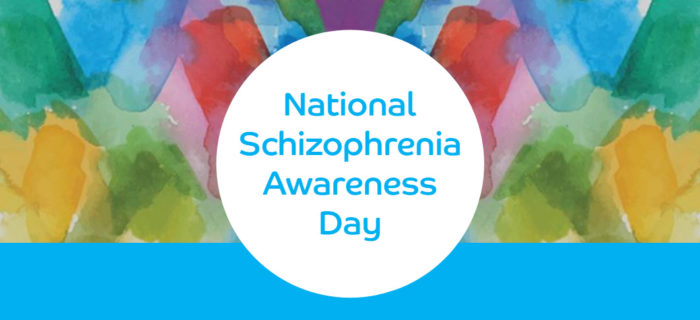
National Schizophrenia Awareness Day on 25 July shines a light on the challenges faced by hundreds of thousands of people living with a diagnosis of schizophrenia in the UK and millions more worldwide. It sets out the steps we can all take to break down the stigma and discrimination surrounding this much-misunderstood illness
What is Schizophrenia?
Schizophrenia is a mental illness which affects the way you think. The symptoms may affect how you cope with day to day life.
You could be diagnosed with schizophrenia if you experience some of the following symptoms.
- Hallucinations
- Delusions
- Disorganised thinking
- Lack of motivation
- Slow movement
- Change in sleep patterns
- Poor grooming or hygiene
- Changes in body language and emotions
- Less interest in social activities
- Low sex drive
Everyone’s experience of schizophrenia is different. Not everyone with schizophrenia will experience all of these symptoms.
What myths are there about schizophrenia?
There are some myths or mistaken beliefs about schizophrenia which come from the media. For example,
- ‘Schizophrenia means someone has a split personality’
This is not the case. The mistake may come from the fact that the name ‘schizophrenia’ comes from two Greek words meaning ‘split’ and ‘mind’. - ‘Schizophrenia causes people to be violent’
Research shows that only a small number of people with the illness may become violent. The same way as a small minority of the general public may become violent.
People with schizophrenia are far more likely to be harmed by other people than other people are to be harmed by them. But as these incidents can be shocking, the media often report them in a way which emphasises the mental health diagnosis. This can create fear and stigma in the general public.
Support groups
A support group is where people come together to share information, experiences and give each other support. Hearing about the experiences of others can help you feel understood. This may help you feel less alone and boost your self-confidence.
You might be able to find a local group by searching online. Rethink Mental Illness have support groups in some areas. You can find out what is available in your area, or get help to set up your own support group if you follow this link:
rethink.org/about-us/our-support-groups.
Or you can call the Rethink advice service on 0808 801 0525 for more information.
For more information, please visit rethink.org/get-involved/awareness-days-and-events/national-schizophrenia-awareness-day

